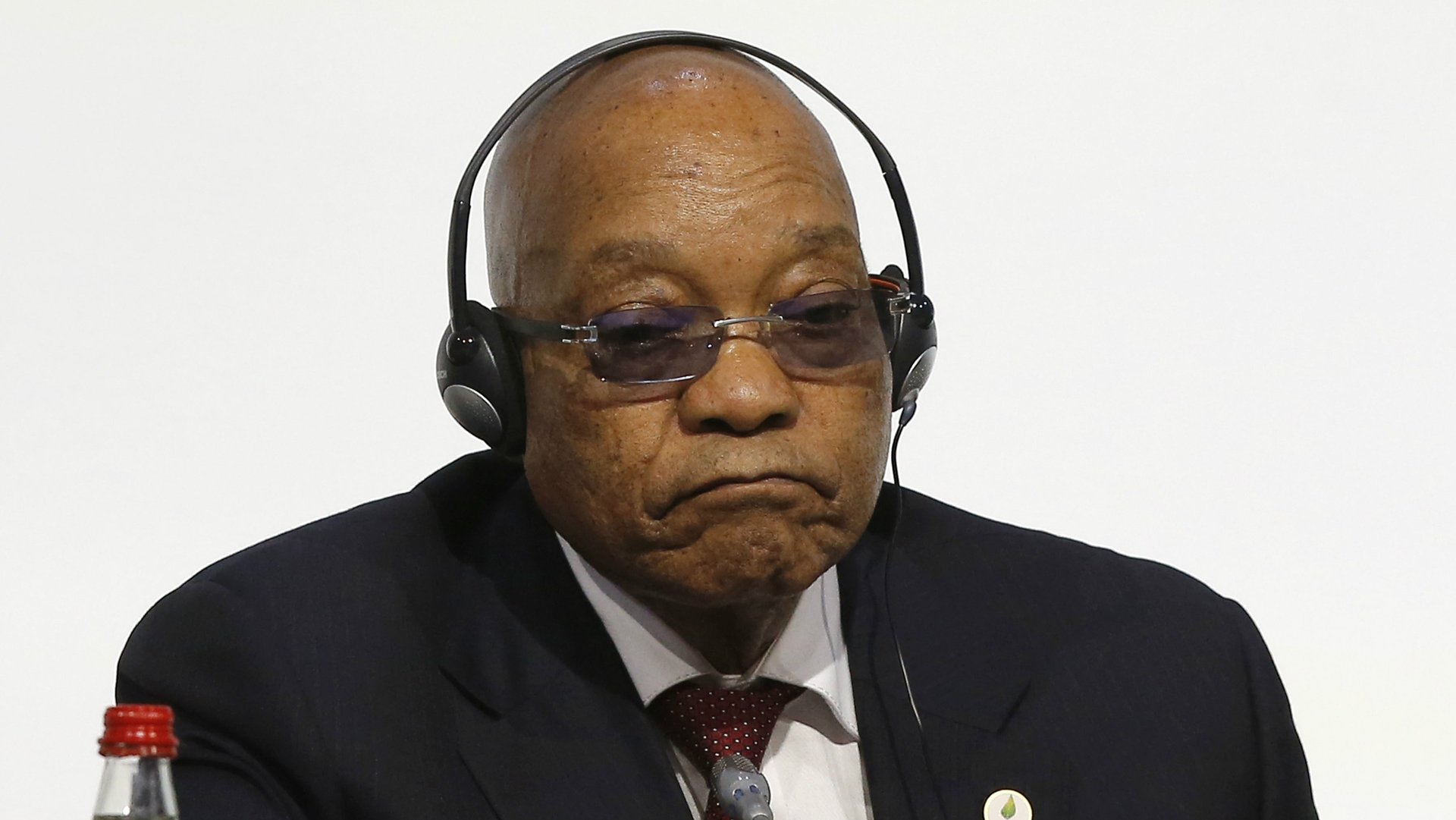South Africa’s top court says Jacob Zuma’s home renovations were unconstitutional
South Africa’s highest court ruled today (Mar. 31) that president Jacob Zuma acted unlawfully and behaved in a way that was inconsistent with the constitution when he used state funds for certain renovations on his private residence.


South Africa’s highest court ruled today (Mar. 31) that president Jacob Zuma acted unlawfully and behaved in a way that was inconsistent with the constitution when he used state funds for certain renovations on his private residence.
The 11 justices of the Constitutional Court, led by chief justice Mogoeng Mogoeng, who drafted the ruling, said the embattled Zuma, ”failed to uphold, defend and respect the constitution” when he disregarded instructions from the anti-corruption watchdog, also known as the public protector, to pay back the state a portion of costs that went into the renovations.
In 2009, soon after Zuma became president, upgrades began at his personal home in Nkandla, a small town in the eastern South African province of KwaZulu-Natal. But questions were immediately raised as to who was footing the bill for the eventual 246 million rand ($20 million) worth of improvements to the property, in a controversy that came to be known as ”Nkandlagate.”
A 2014 investigation by the public protector Thuli Madonsela found the work done at the Nkandla residence went beyond beefing up the security infrastructure, as claimed later by some officials in the Zuma administration. In her report, Madonsela urged Zuma to pay back some of the costs that she deemed to be non-security related, such as the building of a cattle hut, swimming pool, visitors’ centre and amphitheater.
Zuma and his allies, including senior parliamentarians and police officials, deemed Madonsela’s recommendations non-legally binding at the time. The country’s opposition parties disagreed and took the matter to the Constitutional Court, arguing that Zuma and the country’s parliament had breached their constitutional mandate by refusing to adhere to Madonsela’s findings.
The country’s top court agreed with the opposition and, as part of today’s ruling, ordered the Treasury (pdf, p. 52) to calculate what Zuma owes the state for the non-security upgrades within 60 days. The president was given a further 45 days to pay back the amount, which Madonsela earlier estimated at 10 million rand.
Zuma is no stranger to controversy, having faced allegations of impropriety in the past (he was previously acquitted of rape and corruption charges against him were dropped shortly before he became president.) But the last few months have been particularly scandal-plagued for the former anti-apartheid activist.
South Africa’s economy, the most advanced on the continent, went into a tailspin in December after he decided to sack the country’s well-respected finance minister Nhlanhla Nene and replace him with an unknown parliamentarian, only to replace him a few days later with another official. The move rattled the markets, spooked investors and led ratings agencies to downgrade the country’s credit rating to one step above junk status.
And recent allegations that the Guptas, a wealthy Indian family with wide business interests in South Africa who are friends with Zuma and business partners with his son, may have been behind the firing of Nene has compounded the perception that the president is deeply corrupt.
The country’s main opposition party, the Democratic Alliance (DA), called for Zuma’s impeachment following the ruling, saying in a statement that his actions were ”a serious violation of the constitution.”
Previous efforts at impeaching Zuma have fallen flat, partly due to the parliamentary dominance of the ruling African National Congress (ANC). But, in its first official reaction to the ruling, the party did not exactly offer a strong show of support for their president. Instead, they made it clear that they respected and would closely study the court’s decision, ”given the serious nature of the judgement delivered.”
Meanwhile, Zuma said he would reflect on the implications of the judgement and consult with “impacted institutions of state [to] determine the appropriate action,” according to a statement from his office.